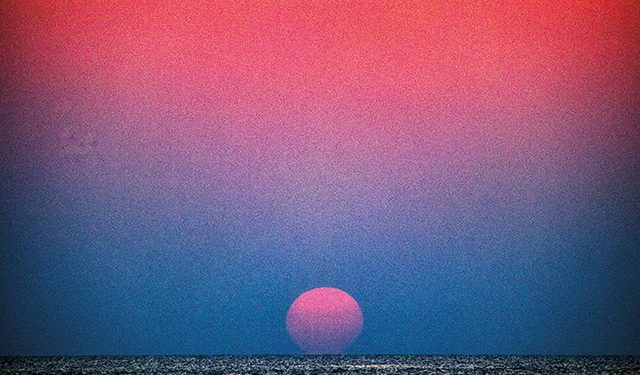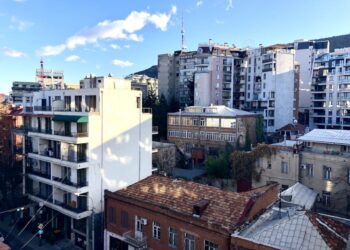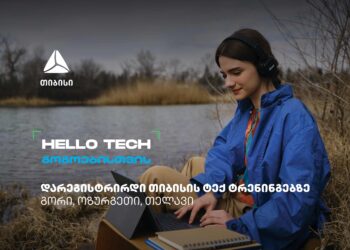The Georgian Black Sea coast has many and varied places at which to enjoy the water. Not many, however, offer both the sea and forested shade within a stone’s throw of each other. One such location is now no longer as unknown as my wife and I would wish, but that is a sign of the times, it seems, and inevitable.
Several years ago, our Georgian friends invited us to camp with them at this spot, just outside the popular tourist town of Ureki and easily reachable from it by foot or car. We then made it an annual tradition for about a week each summer, with one CoVid season’s interference. This year it was vastly different from before. For one thing, my wife had a cast on her leg from knee to toes, the result of a midnight fall into a pit in Kakheti in July. But this was no deterrent!
The Russians had now firmly arrived, too, evinced by the license plates of their cars: not only all across Georgia, especially in Tbilisi and Batumi, but here as well. The pine-shaded hillocks of “our” spot were now populated every few meters with another family, where before we had had practically the whole kilometer stretch to ourselves each night. Thankfully, we three groups still fitted ourselves in together and were not unduly bothered. The odd Ukrainian or Armenian vehicle also appeared overnight, with some more Georgians during each day, coming and going.
There have been hardly any Russians among the guests at our Upper Svaneti guest house this summer, but in Batumi, Tbilisi and elsewhere, the language is much more commonly heard than before February
A special truck now smooths out the sand right at the shoreline each morning, starting before 7 am, rather early to be drawing Zen parallels on the beach. There has also been extensive driftwood removal, lamentable on two fronts: It takes away some of the wonder of beachcombing discoveries, and also robs us of firewood, which has become scarce for the scrounging. Pinecones and needles do litter the ground, though, and make admirable firestarters with their high content of flammable resin. There are still no public toilets or showers or electricity, and hardly any receptacles for garbage (a few, though). Note to self: buy a small, floorless, pop-up “WC tent”, widely available online, to alleviate the bathroom situation.
Lifeguards do have a station, however, with a white flag for swimmable waters and a red one for otherwise (the latter did not occur during our five days this August).
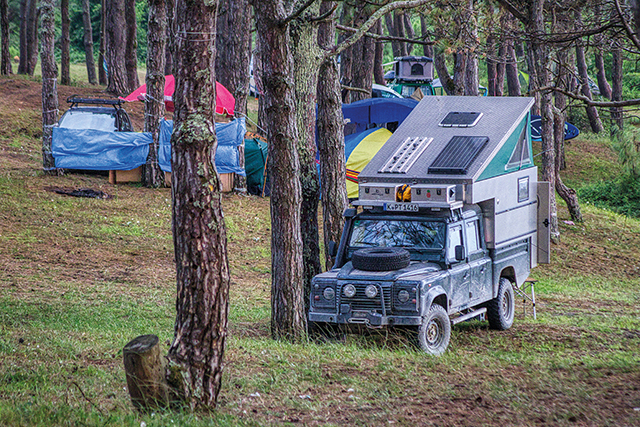
We had bought a new tent and other gear to replace that lost in a recent garage fire; and were ready to jump back into camping, new conditions notwithstanding. Someone must have blown the whistle on our secret spot online, I suppose, letting the whole community of “recently arrived Russians in Georgia” know; there they were.
Knowing that one may not call the police for the noise of a public disturbance until quite late in the night, I decided to see how long the Slavic pop emanating from battery-powered Bluetooth speakers would last
Knowing that one may not call the police for the noise of a public disturbance until quite late in the night, I decided simply to see how long the Slavic pop emanating from battery-powered Bluetooth speakers would last. Most nights it was over by 21:30, and had not been concert-level blaring before then, and only once did I bother asking our immediate neighbors to turn it off after this time. (They turned it down instead, to a level we could live with, an acceptable compromise.) The police did, however, patrol the beach with lights revolving and the occasional blaaat, just in case there could be trouble brewing between what would remain uneasy neighbors. There was none that I saw.
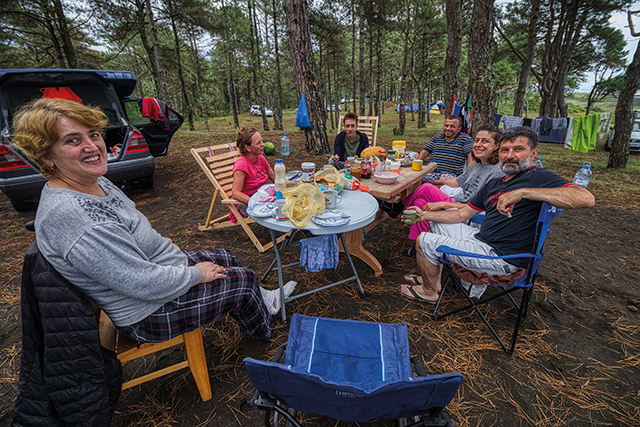
We had already checked out the nearby Dendritic Park with its magnificent trees and birds in years past, so gave it a miss this year. Ureki town itself was awash with cars and beachgoers on the narrow streets, like every summer, and we did have a restaurant lunch once, to break the schedule of our own meals cooked on gas bottle or open coals.
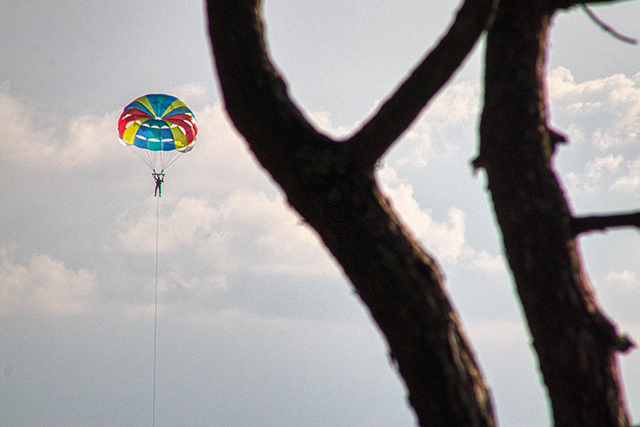
I did look for some new photographic subjects, settling on beach-edge sandpipers combing for sea life for their small appetites. A pair of sea eagles also appeared, briefly, and was gone before I could train my long lens on them. The sunsets did not disappoint, either, with one a very minimalist affair, the orb turning almost monochrome before hitting the horizon.
I suppose that Georgian hospitality providers have mixed feelings about this new, six-month-old Russian “invasion” since the war in Ukraine began
Early morning gave me dew-covered spiderwebs backlit by sunrise over the bog behind our tents, a delightful find. Also, the variety of camping setups was large, with some truck-to-camper conversions, vans, or tents made for the top of a 4×4 sprinkled in with the ordinary small tents. Our own tent was the largest around, a 6-person one, Chinese made but quite sturdy once we battened it down sufficiently for the occasional wind which can blast one from the direction of the sea. It stood up to rain as well, mercifully. But we did eye the vehicular versions with considerable interest for future possibilities.
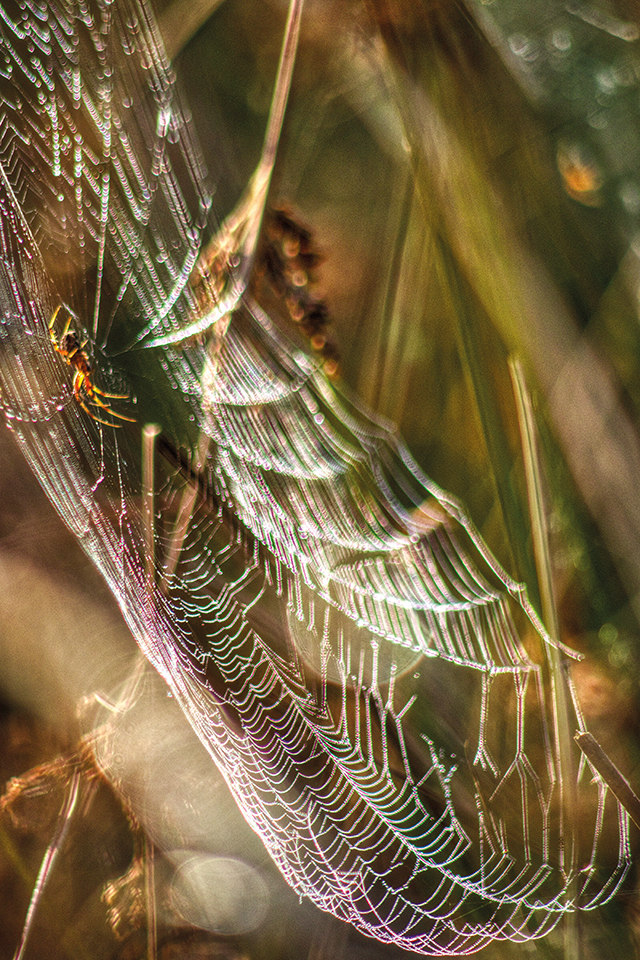
Mornings were calm enough to light the gas stove with no wind protection at all, and on our last morning, the water was wavelessly still, more lake than sea at all. The usual entertainments of Banana Boat, boat-pulled paraglider, jet-ski, horse rides and more were active all day.
I suppose that Georgian hospitality providers have mixed feelings about this new, six-month-old Russian “invasion” since the war in Ukraine began. Real estate prices in Georgia (rental or purchase) have certainly gone way up as a result, and the tourism industry seems to be booming; although there have been hardly any Russians among the guests at my wife’s and my Upper Svaneti guest house this summer, in Batumi, Tbilisi and elsewhere the language is much more commonly being heard than before February. Some Russian speakers will no doubt be Ukrainians, and the odd Belarussian or Eastern European too, but mostly Russian citizens. “It’s complicated,” as the saying goes. And likely to stay that way, at best, for the forseeable future.
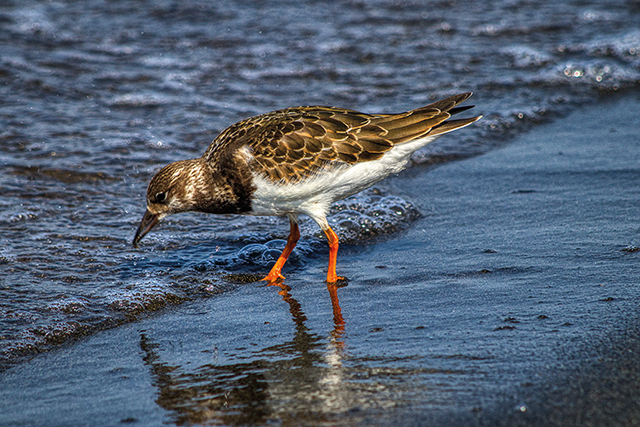
BLOG by Tony Hanmer
Tony Hanmer has lived in Georgia since 1999, in Svaneti since 2007, and been a weekly writer and photographer for GT since early 2011. He runs the “Svaneti Renaissance” Facebook group, now with nearly 2000 members, at www.facebook.com/groups/SvanetiRenaissance/
He and his wife also run their own guest house in Etseri: www.facebook.com/hanmer.house.svaneti

